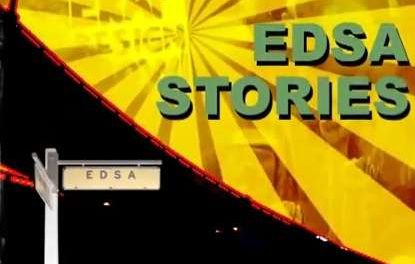By Walden Bello*
April 26, 2002
George Soros, the financier, has recently received attention for his critique of the global financial system, especially for his analysis of the paradigm of “market fundamentalism” that undergirds it. His most recent book, On Globalization (New York: 2002), which has been promoted as a thoughtful critique of the current system of global economic governance, presents a blueprint for reform of the WTO, the IMF, and the international aid system.
COUNTERVAILING INSTITUTIONS WITHOUT TEETH
Soros’ proposals are not without merit. He stands most firmly when he deals with the WTO. Unlike many other proponents of global governance reform like the International Confederation of Free Trade Unions (ICFTU), Soros does not propose attaching amendments like labor or social clauses to the WTO charter. This is not, however, for the reasons given by many WTO critics, who say that this would simply give more power to an already extremely powerful organization since the WTO would be given the mandate to be the ultimate judge in trade and labor issues. Soros supports the WTO mission of promoting “rules-based liberalization of international trade” and believes that WTO “accomplishes that mission brilliantly.” Soros’ reason is that this would overload the WTO with a task that it is not equipped to do while hampering it in fulfilling its main role of global trade liberalization. Other institutions should either be strengthened or created to promote what Soros calls “global public goods” such as labor rights, the environment, consumer safety, and public health. The International Labor Organization (ILO), for instance, must be strengthened vis-?-vis the WTO, and the place to start is by forcing governments to ratify ILO conventions. Civil society, he argues, should be pressuring the US government, for instance, which has ratified only 13 of 182 ILO conventions and only two of eight “core labor standards.”
This promising approach of urging the creation or strengthening countervailing institutions devoted to public goods is nevertheless undermined by his failure to follow through on the political consequences of his analysis. Inexplicably, he does not propose coercive power for such countervailing institutions but would limit them to eliciting “voluntary compliance.” In fact, the problem lies not in the lack of countervailing institutions-there are scores of multilateral environmental agreements and organizations; it lies in their lack of coercive power. In contrast, the WTO enjoys formal coercive power while the IMF and World Bank possess informal coercive power owing to their control over massive financial resources.
GIVING WOLFESNSOHN A CHANCE
When it comes to the World Bank, Soros’ reform proposals are on even more tenuous ground. He argues that the proposal of the Meltzer Commission to convert the World Bank into a World Development Authority specializing in grants to the poorest countries is not acceptable because “so-called middle income countries like Brazil, and even Chile, have very uneven income distributions and great social needs.” He also argues for giving James Wolfensohn a chance to implement reforms like the Comprehensive Development Framework (CDF) or the Poverty Reduction Strategy Papers (PRSP). Lending operations must be reformed, there should be more consultations with civil society, loans to repressive and corrupt regimes should be stopped, directors should be made more independent of the governments they represent, steps must be taken to prevent the staff from dominating the agency like putting a limit of five years on employment.
The problem here is that many of these reforms have been tossed about for 30 years, ever since the tenure of Robert McNamara, yet things have not improved. As Soros himself has admitted on other occasions, the Bank’s performance has simply gotten worse and the bureaucracy has become more immovable. As noted earlier, the CDF framework and the PRSP have not meant a break with the old macroeconomic paradigm guiding both World Bank and IMF structural adjustment programs which stressed narrowly defined economic efficiency, greater market orientation, and fiscal and monetary stability. Consultations with civil society groups have, in fact, taken place under Wolfensohn, but this has amounted to no more than a public relations exercise, the main legacy of which has been greater suspicion of the Bank by many grassroots NGOs that felt the Bank was isolating them as “unreasonable” NGOs and dealing only with “reasonable” ones.
As for giving Wolfensohn a chance, this is a highly personal calculus which is not likely to sound credible to pro-reform elements who have been waiting for nearly a decade since Wolfensohn’s appointment as World Bank head for some improvements to take place. Critics point out that the Wolfensohn regime is in many ways a replay of the era of Robert McNamara, with the same “anti-poverty” rhetoric and strategy, and with the same meager results in terms of effective aid programs.
CREATING MONEY FOR AID
In the end, Soros admits that keeping the World Bank afloat is only a temporary measure designed to ward off the attack of the political right on multilateral aid, thus buying time to place a better aid mechanism in place. That mechanism would be the issuance of special drawing rights (SDRs) via the IMF and the rich countries’ donation of their share to a development fund. This would mean treating the SDR not just as a reserve currency but as a real asset to be used for development purposes. Should the rich countries agree to treat SDRs as real assets and to donate their share of the new SDRs created to aid, Soros says, there would immediately be available some $18 billion under a special SDR issue already approved by the IMF but awaiting ratification by the US Congress.
Under the proposal, an “international board operating under the aegis of the IMF but independent of it” would be set up to decide which projects or programs would be eligible for funding. The board would actually have no authority over the spending of funds but “would merely prepare a menu from which the donors would be free to choose, creating a market-like interplay between donors and programs, supply and demand.
Creating money to pay for aid seems like the perfect solution. But the basic problem is that it puts too much emphasis on the volume of aid as the key to development rather than the conditions and implementation of aid. Soros cites favorably the United Nations report co-authored by former Mexican President Ernesto Zedillo that calls for an increase of $50 billion in aid. Soros has fallen victim to the same syndrome that also ensnared Robert McNamara: that poverty can be solved by throwing money at it. The paradigm within which aid programs operate is a far greater determinant of success, and this is absent from Soros’ proposal, except for mention about “a greater role of civil society organizations” in aid delivery.
The Soros proposal, moreover, does not solve one of the key problems with the Bretton Woods system, which is the stranglehold on decision-making by the rich countries. The donors of SDRs-meaning the OECD countries-would still be the ones to decide which programs or projects are worth supporting. As in the case of the World Development Authority proposed by the Meltzer Commission, the massive power imbalance that is at the heart of the Bretton Woods system of multilateral aid remains. Indeed, with no developing country representation assured either on the proposed board or among the funders’ consortium, the outcomes could be worse under this “market-like system” than under the present system.
STRENGTHENING THE IMF
When it comes to the IMF, Soros’ critique of the institution follows the now familiar lines: the Fund pushed the capital markets of the Asian economies before they were prepared for it, thus creating the conditions for the Asian financial crisis; and when the crisis did hit, the Fund promoted pro-cyclical policies, such as tight budgets and high interest rates, that worsened the crisis. Soros says that he partly agrees with the conservative critique that the IMF’s past interventions created “moral hazard,” but he says that this was to a great degree inevitable to attract private capital to the developing world since without some extra-market incentives, capital would not have flowed there.
Soros’ defense of the Fund as necessary to attract capital to the developing world suffers on two counts from a historical perspective. First, given the conditions of limited profitability in the metropolitan economies in the early nineties, foreign capital had no choice but to migrate to areas that were regarded as offering better opportunities profit-wise; in other words, it is likely that they would have done this whether these countries had IMF programs or not. The example of Malaysia, Singapore, Hong Kong, China, and Taiwan-all of which either had no IMF programs or had inconsequential ones–underline this.
Second, the sort of capital that was encouraged to enter developing country capital markets by the possibility of an IMF rescue in the event things soured was speculative capital, which was mainly interested in high rate-of return, quick turnaround kind of investments such as the stock market or real estate. This is not the kind of capital that contributes to development. In contrast, the dynamics of foreign direct investment, which involves a strategic commitment to the economy, is not determined by IMF guarantees.
The importance Soros attaches to the Fund as mechanism of getting capital to flow to the developing world is what makes him support strengthening the IMF despite what he acknowledges as its poor record in the developing world. Some reforms that Soros seeks are viable. “Bailing in” lenders instead of bailing them out-that is, having them participate with financing a rescue program and agreeing to take losses in the process is one. Establishing an international bankruptcy mechanism that would protect the debtor and allow an orderly process of both economic recovery for the debtor and asset recovery for the creditor is another.
However, establishing a contingency credit line (CCL) that countries with “good policies” can tap into before a crisis begins is unsound, for two reasons which have already been pointed out by other critics and of which Soros is aware: first, few countries would dare take advantage of CCLs for fear of alarming investors that a crisis is impending and thus create conditions for a stampede; second, the IMF’s well-known inability to distinguish good from bad policies.
Thus we are back to the fundamental problem. The Fund is saddled with a paradigm that puts a premium on macroeconomic stability, legal and political conditions that promote the interests of foreign capital, and the unrestricted functioning of the market. This paradigm, coupled with the United States Treasury’s propensity to use the Fund to advance US economic and corporate interests, is at the heart of the Fund’s succession of failures in the developing world. Giving the Fund more power like offering CCLs and managing an international bankruptcy regime is tantamount to rewarding failure. Like the Meltzer Commission, Soros begins by criticizing the Fund for wrong policies but ends up believing that it “needs to play a larger rather than a lesser role…”
In the end, Soros’ foray into the world of the multilaterals is interesting but very disappointing. The basic reason for this is that there is a fundamental contradiction between analysis and prescription. Soros’ analysis of the Bretton Woods institutions is damning, yet he ends up either supporting maintaining them, as in the case of the Bank, or expanding their powers, in the case of the IMF. Perhaps he realizes that, after all, he has, as a successful capitalist, benefited greatly these institutions.
* Walden Bello is executive director of Focus on the Global South.








